February 8, 2015
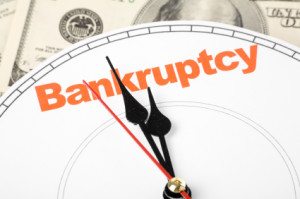 Filing for bankruptcy is a drastic step in regaining your financial health, and the impacts are long-lasting. It is not something to be done lightly, or without weighing out all of your available options. If you are drowning in debt, however, bankruptcy can be a valuable first step in rebuilding your financial future.
Filing for bankruptcy is a drastic step in regaining your financial health, and the impacts are long-lasting. It is not something to be done lightly, or without weighing out all of your available options. If you are drowning in debt, however, bankruptcy can be a valuable first step in rebuilding your financial future.
GetFreeOfBills.com notes that bankruptcy comes in two forms: Chapter 7 and Chapter 13. While Chapter 7 allows you to discharge most debts, Chapter 13 requires you to follow a structured plan to repay your debts under more favorable terms. Depending on the amount of disposable income you have, you might be required to file Chapter 13. Regardless of which type you file, however, the pros and cons are generally the same.
Pros
- Clean slate: A bankruptcy provides a clean slate. It effectively resets your credit to zero, except for the debts that cannot be discharged such as student loans, recent back taxes, and child support. It provides you with the opportunity to stop making costly payments and provides you with more money to live on each month.
- Opportunity to rebuild: Some people believe that bankruptcy prevents you from ever having credit again, but this is not the case. Many people manage to build new lines of credit shortly after their bankruptcy, and it gets easier as time passes. While it is true that bankruptcy remains on your credit report for 10 years, its effects gradually lessen.
- Stopping adverse collections actions: If you are being hounded by creditors, facing foreclosure, or afraid that your wages will be garnished, bankruptcy can be a psychological relief. When you file for bankruptcy, you will receive an automatic stay from the court. This forces your creditors to cease all adverse collections activities against you. If you have a bankruptcy attorney, he or she will also act as a shield, handling creditors on your behalf.
- Exemption laws: Your home and car are generally exempt from bankruptcy, as long as you continue to meet your payment obligations. You are also entitled to a cash value for personal possessions. If you have a significant number of luxury possessions, you might be required to sell some, but the exemptions are generally high enough to let most people keep their personal items.
- Job protection: Although some employers will not hire applicants with a bankruptcy on their credit report, the job you already have is protected. It is illegal for an employee to be fired for declaring bankruptcy.
Cons
- Damaged credit: Bankruptcy is a major hit on your credit report. In the immediate aftermath of the bankruptcy, you might be unable to get any new credit at all. Although it usually does not take long to get new offers, you will fall into a high risk category for lenders. Expect to pay interest rates that are significantly higher than the ones you had prior to your bankruptcy. However, if you are in the position of filing for bankruptcy, your credit is probably already damaged. Some people find that the credit hit is much less significant than they anticipated.
- Filing costs: Filing for bankruptcy typically costs a few hundred dollars, depending on your location. Attorney’s fees are billed on top of that. However, in most cases you can make a payment arrangement if you can prove that paying a lump sum would present a financial hardship.
- Embarrassment: Although it is surprisingly common, filing for bankruptcy still carries a certain stigma. Some people worry that their loved ones will find out and ultimately think less of them for their decision. However, bankruptcy typically comes at the end of a long journey through mounting debt. Most people understand that sometimes life happens, and do not judge their friends and relatives for making a tough financial decision. Besides, having your home foreclosed or your car repossessed is not exactly a less embarrassing option. When taken seriously and only as a last resort, bankruptcy can actually be the smartest choice for some situations.
- Exempted debts: Some debts cannot be discharged in a bankruptcy, including recent back taxes, child support, and student loans. In addition, most people choose to keep their mortgage and car loan, if applicable. However, discharging your other debts will create more available money each month, which can then be diverted toward paying your remaining obligations.
Bankruptcy is not for everyone, but it is the best solution for many people. Attorney David M. Often of Get Free of Bills understands the complex decision-making process that is involved in determining whether bankruptcy is the right choice for you. Contact his office today for professional advice on how to proceed along your journey to financial freedom.
Tags:
Bankruptcy,
Bankruptcy Laws,
budgeting,
Credit Card,
Credit Card Debt,
Debts,
Financial Panning,
Laws,
money
November 19, 2013
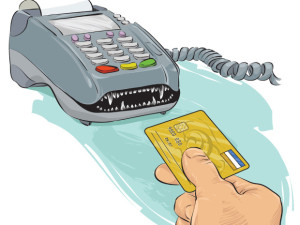 Over time credit cards have become one of the most popular finance options. Their flexibility means that they can be used in almost any financial situations; whether you’re looking to spread the repayments of a large purchase, spend money overseas, build your credit history or earn loyalty points or rewards on transactions.
Over time credit cards have become one of the most popular finance options. Their flexibility means that they can be used in almost any financial situations; whether you’re looking to spread the repayments of a large purchase, spend money overseas, build your credit history or earn loyalty points or rewards on transactions.
Unfortunately though, when they are not managed properly credit cards can cause real financial problems – and because of their relatively high interest rates; the longer you leave it the worse it gets. Throughout this article we are going to run through a 5 step guide to how you can overcome credit card debt and get your finances back on track:
Step One: Calculate how much you owe
Although it may be tough to face the reality of your problems, this is ultimately the first step to overcoming your debt. So, find your most recent statements and see how much you have outstanding on each card. Until you are debt free it’s definitely a good idea to stay away from spending anymore on your cards.
When noting down all outstanding balances it may also be a good idea to include the interest you’re being charged highlighting any interest free deals or bonuses that you are currently benefiting from.
Step Two: Create/ recreate your budget
There are three possible reasons you got into debt in the first place:
1. You overspent month on month
2. Your budget wasn’t effective
3. You didn’t have a budget
Whatever the root cause of your problems, you need to draw a line underneath it and work on putting things right. The single most effective way of doing this is by creating an effective monthly budget.
To do this you firstly need to note down all sources of income that you’re receiving month-on-month. This will include your mainsalary, any other jobs you may have, anything you may be earning on savings or investments and finally any benefits or tax credits you may earn. Having added all of these together you now need to calculate your level of outgoings.
In order to determine how much you are spending throughout the month you firstly need to gather as many recent bank statements as you can. Arguably the most effective way of listing your outgoings is to split them into compulsory, essential and luxuries. Your compulsory outgoings will be payments that you make each month without fail, so things like: your rent or mortgage, utilities, council tax, loan repayments and insurance costs. Your essentials are things that you couldn’t get by without but often differ in cost each month, such as food, petrol, mobile phone and broadband bills, car maintenance costs, TV licence and parking costs. Finally, you luxuries are things that you don’t necessarily need such as entertainment costs, night outs, dining out, gym memberships, holidays and gifts.
It will be evident by simply looking at your bank statements whether each expense differs on a monthly basis or stays the same. For those expenses that differ, take an average from the past three months and if you’re in any doubt always overcompensate.
Your final step is to calculate your disposable income; this simply involves deducting your total monthly outgoings from your total monthly income.
Step Three: Adjust your budget
Now it’s time to make some adjustments to your budget in order to increase your level of disposable income. There are two ways of doing this; increase your income or decrease your outgoings. Decreasing your level of outgoings will be the simplest way of doing this, and your first stop should always be the luxuries section. By simply reducing the amount you spend on eating out, takeaways and seasonal gifts you could find yourself £100 better off over the course of the month.
Always assess your subscriptions too; do you get the most out of your gym membership? Do you really watch TV enough to warrant having Sky TV? Remember, the more you can save the more you can put towards credit card repayments and subsequently the quicker you can get debt free.
Step Four: Calculate how much you can afford to contribute each month
Now that you know how much money you have left over at the end of each month you can start to calculate how much you can contribute to repayments. Often the most effective way of getting debt free is by snowballing your debts. Snowballing is basically just the process of paying off debt in order of interest rate (from highest to lowest). So while you may only be paying the minimum payment on three of your cards, you are taking large chunks off the balance of your highest interest card.
It may be tough at first, but you need to condition yourself to churn any additional disposable income into your credit card debt. So, if you get a bonus at work or do some overtime then this needs to go towards your credit card repayments. The lower your level of debt gets the easier it will become.
Step 5: Keep your eye on the prize
There are temptations to spend every day you just need to ensure that you keep your eyes firmly on the prize of getting debt free. The rewards of being debt free will feel so much better than the five minutes of joy you get from an impulse buy.
Tags:
budgeting,
Credit Card,
Credit Card Debt,
Debts,
economy,
Financial Problem,
money
May 8, 2013
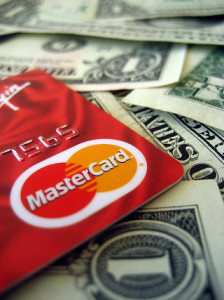 Your credit card, while serving as a powerful tool for all your financial needs, can lead you to a world of trouble if you don’t use it the right way. Credit cardholders must avoid getting trapped in a deep hole called debt. However, they often find it hard to consider the immense amount of expenses, especially if a bank already gave them enough credit to just charge these costs. Moreover, this powerful financial tool can oftentimes be considered as the worst form of finance because of the fact that incurred debts are classified as unsecured. Also, they carry an interest rate that is higher than a home or car loan. Compared to other types of loans such as home mortgage or student loan, credit card debts are not tax deductible.
Your credit card, while serving as a powerful tool for all your financial needs, can lead you to a world of trouble if you don’t use it the right way. Credit cardholders must avoid getting trapped in a deep hole called debt. However, they often find it hard to consider the immense amount of expenses, especially if a bank already gave them enough credit to just charge these costs. Moreover, this powerful financial tool can oftentimes be considered as the worst form of finance because of the fact that incurred debts are classified as unsecured. Also, they carry an interest rate that is higher than a home or car loan. Compared to other types of loans such as home mortgage or student loan, credit card debts are not tax deductible.
If you have a credit card, you don’t want to use it on certain things or events that could definitely spell disaster on your financial and economic standing. In fact, many experts say that you should not use it in these situations:
- Paying for your college tuition. Using the credit card while in college is never good to begin with, because of the consequences that doing so may bring. Many college graduates have experienced dealing with credit card debt during their time at school, and their financial woes continue to pile up as they advance in age. For one, upon graduation from college, you might not be able to find a job at the soonest possible time, which would make it hard for you to earn income to pay off your credit card debt.
- Paying for your wedding costs. In such a prolific event like a wedding, planning is a key priority. Saving for years with your soon-to-be wife or husband for the significant day is a very important way if you want it to be extra special and start your married life on the right track. However, you shouldn’t use your credit card in financing your wedding costs, as this will backfire, causing you newlyweds to deal with debt during your first few years of marriage.
- Going on a vacation spree. If you are planning for a vacation, it is best that you save on cash money for your out-of-pocket expenses rather than using your credit card all throughout your out-of-state or out-of-country trip. Financing your trips through the use of your credit card will just create a mountain of debt upon your return.
- Paying for your medical expenses. Dealing with the costs of your medical treatment can be very daunting, but that does not mean you should resort to using your credit card to finance them. Some health providers offer rate adjustments and payment plans that might be suitable for you.
Using your credit card is still important, but using at frequently and as a means of covering much of your finances is not good at all. Next time you encounter the abovementioned situations, think twice before dealing with your finances. Use your credit card in moderation, or suffer consequences along the way.
Tags:
credit,
Credit Card,
Credit Card Debt,
debt,
economy,
financial planning,
money
January 18, 2013
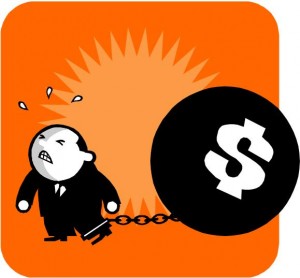 A lot has been written about strategies to get out of debt, plan a budget, and stick to it. If you want to be one of those success stories of people who have clawed their way out of debt on their own, that’s great. If you’re digging out of a particularly deep hole, or your shovel is disproportionately small, you may quickly realize that getting out of debt on your own is an all but impossible task.
A lot has been written about strategies to get out of debt, plan a budget, and stick to it. If you want to be one of those success stories of people who have clawed their way out of debt on their own, that’s great. If you’re digging out of a particularly deep hole, or your shovel is disproportionately small, you may quickly realize that getting out of debt on your own is an all but impossible task.
As calls from creditors start harassing you at all hours of the day and you watch your monthly statements steadily increase, it may seem as if bankruptcy would easily solve all your problems.
This is rarely the case, so today we’re going to talk about the range of professional options available to you. In Canada debt program options include: Credit Counseling, Debt Consolidation Loans, Debt Settlement, Consumer Proposals, and finally, when all else has failed, Bankruptcy.
A professional brings years of experience, a greater knowledge of your options, and, most importantly, a non-biased approach to your finances. They’ll help you examine your income and expenses and come up with a short and long-term plan to get you out of debt and keep you out.
This may also include negotiating with creditors in an effort to reduce the amount of interest you pay, lowering the monthly payments to make them more manageable, and lengthening the deadline for payback.
One thing credit counseling won’t help with is actually reducing the amount you owe. That’s fine – you DO owe the money, but if you’re truly in trouble, you might need a more drastic option.
Debt consolidation takes all of your debts and pays them off under a single loan. That loan is now your only debt. This is incredibly helpful because you’ll only have one monthly payment, which is easier to track, plan for, and pay on time. It’s also possible to negotiate a lower overall interest rate. On top of all that good news, you can also lower your monthly payment to something you can manage more easily.
The drawback to a lower monthly payment is that it could end up taking longer to pay your debt consolidation loan off than it would just paying your debts back.
Hiring a debt settlement specialist to negotiate your debts might be the best decision you can make. By speaking to each of your creditors, they’ll work on your behalf to lower the total amount you owe, lower interest rates, and set up comfortable monthly payments.
Despite it’s rather passive name, this is an official agreement between you and your creditors to settle your unsecured debts. You’ll work with a licensed bankruptcy trustee, and this option is pretty much the last step before bankruptcy and WILL negatively affect your credit score and borrowing ability.
Tags:
Credit Card Debt,
debt,
Debt Problems,
financial planning,
money,
personal finance
September 12, 2012
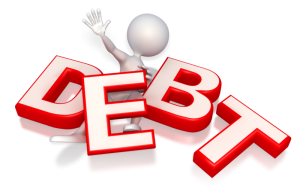 More and more credit card users are going in the debt each month and the common reasons are stagnant income, rise in the living cost, and unexpected life events such as the accidents, diseases, and natural calamity etc. These reasons make the survival difficult for the credit card users and they find it really difficult to come out of their debt. It may surprising to hear but it is true that debt relief will become the easiest job for you if take care to follow some important debt relief tips. Concentrate on these 3 important debt relief tips to get freedom from all the debt.
More and more credit card users are going in the debt each month and the common reasons are stagnant income, rise in the living cost, and unexpected life events such as the accidents, diseases, and natural calamity etc. These reasons make the survival difficult for the credit card users and they find it really difficult to come out of their debt. It may surprising to hear but it is true that debt relief will become the easiest job for you if take care to follow some important debt relief tips. Concentrate on these 3 important debt relief tips to get freedom from all the debt.
Follow the best debt relief option
There are too many debt relief options available in the market depending on the market situations in the local area. Taking a loan from the financial institutions is the first option that most of debtors try. The debtors can also sell their ownership of house, car, bike or anything else. The item you choose to sell should depend on the total amount of debt that you have to repay. The debtors can also ask for the money from some other sources such as the relatives, friends, and neighbors etc. So you have so many options of debt relief but the big question is that which option should be tried.
To get the answer of this question, the debtors should compare all the options and choose the one that is most suitable according to their requirements. Choose the best option that not only helps to pay the debts but also gives the peace of mind to the debtors.
Pay full debt each month
The credit card providers provide an option to pay the minimum debt this month and pay the rest in the next month. This is a good option of payment for those who do not have the sufficient money to pay their debts this month. Although it is a good option but it can also make the situations worst for the credit card users. The money that you will not pay this month would add to the balance in the next month. This will increase your burden in the next month and it will continue to rise whenever you will fail to pay. So the best option is to try to pay full debt each month and do not let your debt grow like a tree.
Hire a credit counselor
If you think that these 2 tips might not go a long way in giving relief from the loads of debt growing then the next important tip is to hire a credit counselor. The credit counselor will run a credit counseling program to analyze your financial situation and the debt. The credit counselors will also help in getting the concessions from the creditors on the interest rates. So this is how the counselors can be helpful in reducing the debt.
These are the three important tips that will help any debtor to get freedom from the debt.
Tags:
budgeting,
Credit Card,
Credit Card Debt,
debt,
financial planning,
personal finance,
savings
 Filing for bankruptcy is a drastic step in regaining your financial health, and the impacts are long-lasting. It is not something to be done lightly, or without weighing out all of your available options. If you are drowning in debt, however, bankruptcy can be a valuable first step in rebuilding your financial future.
Filing for bankruptcy is a drastic step in regaining your financial health, and the impacts are long-lasting. It is not something to be done lightly, or without weighing out all of your available options. If you are drowning in debt, however, bankruptcy can be a valuable first step in rebuilding your financial future.




Recent Comments